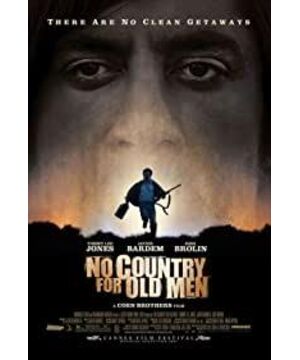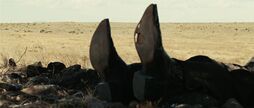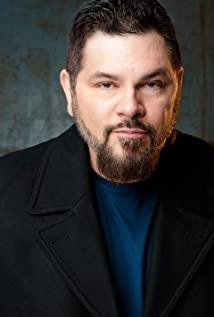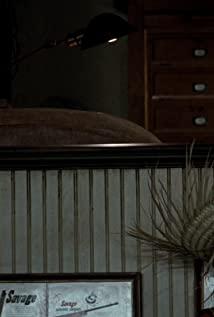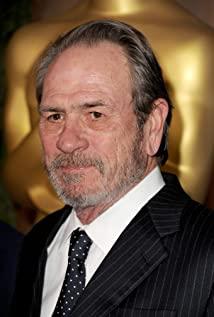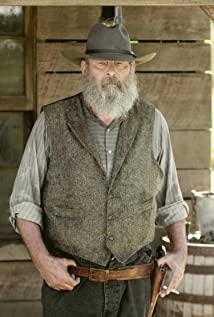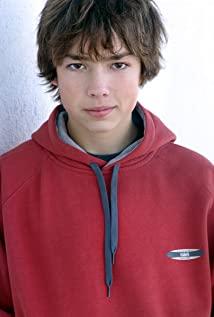Iron Blood, Despair, Violence - A Piece of Pieces About No Country For Old Men The English title "No Country for Old Men" comes from WB Yeats' famous poem "Sail to Byzantium", which is the first line of this masterpiece. Regarding Yeats' influence and status in modern English poetry, it is not necessary to go into details here, but may wish to briefly talk about the background of this poem. This poem was written in 1928. Yeats felt that since the end of the nineteenth century, the middle and upper classes in Europe were increasingly addicted to materialistic and carnal desires. This work expresses his extreme disgust for material richness and spiritual emptiness. The first sentence "NoCountryforOldMen" is cold and chilling, like a young man stepping on the corpse of an elder, his face is cold and threatening. I found a variety of translations of "Sail to Byzantium" on the Internet. Famous authors such as Zha Liangzheng, Qiu Xiaolong, Yang Mu, Fu Hao, etc., the translations are similar, or even the same - "NoCountryforOldMen"/"That is not the country of the elderly" . It seems to be the case. As for the title of the movie, it is a mistranslation and it is helpless. If the title of the movie is "that is not the country of the elderly", it is not only too literary, but also does not look like the title of the movie. For Chinese audiences who do not know the source, after watching the film, they may be confused about "nowhere to stay for the old". In fact, even English-speaking audiences do not necessarily know the origin and meaning of the title. Of course, whether it’s the original novel (Cormac McCarthy’s novel) or the movie, borrowing Yeats’s poems as the title of the book and film is definitely not to interpret the original work or to visualize the meaning of the original work. In "Sail to Byzantium", "death" and "dying" are important images that cover the whole poem. At the time of writing this poem, Yeats was a 72-year-old man, and death was a lingering shadow, so the first sentence "No Country for Old Men" was a mournful cry for his aging body. Regarding "OldMen", at first I thought it was referring to Tommy Lee in the film. Jones played the old policeman Bill, until the end of the film, when Bill decided to retire to visit his father who lived alone in a remote farmhouse, did he discover that this disabled old man in a wheelchair was the real "OldMen". The old man used to be a policeman. He was shot and maimed while catching a murderer. He had to end his career and live on a meager pension. The house in the room was shabby and messy. He made a pot of coffee for himself every week. He could imagine how he had survived all these years, but he did not complain about it. When his son told him that the murderer who hurt him was about to be released from prison, he was indifferent and indifferent, as if it had nothing to do with it. He didn't even know how many years the murderer who hurt him was sentenced to. "An old man is just a waste, a ragged coat wrapped in a cane." ("Towards Byzantium" Section 2) Disabled / waste, wheelchair / crutches - isn't this the old father in the film! Another layer of imagery implied by "NoCountryforOldMen" is "breaking". For example, at the beginning of the film, there is the narration of the old policeman Bill. He said that the police did not need to carry guns at all, but in this film, there were many killings, and more than a dozen people died; when Moss fled in a taxi, the black old man The driver said, you're too young to know how dangerous it is to take someone else's car; Bill read the social news section of the newspaper, said the whole world was crazy, and muttered: "It's all about the money!" - this line is in Three times before and after in the film; Moss and Zigel both buy a piece of clothing from young people and teenagers at a huge price after being injured... All of these are metaphors for a world that is materialized and broken with the past. So, "NoCountryforOldMen" refers to the world that has become the past and all those who live in the past. The Chinese translation of "No Country for Old Men" gives the illusion of a melodrama about social issues. 2 Tone If there is one word to describe the tone of this movie, it must be "slow". The film opens with a landscape of southern Texas on the border with Mexico - desolate grasslands, telephone poles along the road, desolate mountains in the distance... These are the first shots of the film. At the same time, we hear a hoarse, unknown whisper, conveying the difficulty of surviving in this primitive wasteland - "You can't compare with those seniors, you can't help thinking that they are How did he get through it?" "He killed a fourteen-year-old girl, and Piper said it was an impulse. But he told me there was no such thing as an impulse. He said he wanted to kill for as long as he could remember." People should always be vigilant." If you pay attention, you can see that these three monologues correspond to the three main characters in the film. state. The first sentence corresponds to the old Sheriff Bill; the second sentence corresponds to the cold-blooded killer Anton Zigel; the third sentence corresponds to Moss, who is being hunted down and is always in danger. The three monologues and the three states all fit in with this desolate and boundless wilderness. The Coen brothers, who like darkness, took over the chill of Cormac McSey's original novel, and as soon as they came up, they released the three forces of one and the other into the unfettered nature, and let them fend for themselves - Bill hunts down Anton , Anton wants to kill Moss, and the safety of Moss is the reason for Bill's existence. Three forces that have almost never met each other are fighting in secret. There are very few movies like No Country for Old Men that can carry through the endless tension and chill from beginning to end, making the audience tired but not slack in the slightest, so that in the end, even we as audiences will think that there is only death or death. Retirement is the only way out of this suffocation. Another scene that sets the tone for the film happens about three minutes into the beginning. It was a clean and bloody killing that was so brutal and real that viewers couldn't help but worry about the actor who played the cop. Not only does the empty, lonely wilderness feel chilling, but the crowded towns feel the same way. For example, on the night of the head-to-head confrontation between Moss and Anton, the sound of gunshots and car crashes resounded in the streets... As a rule, in this case, even if it is not crowded, someone has to probe, but in this small border town of Texas, I can't even see anyone other than the parties involved, not even a pair of curious eyes hiding in the dark. We can't help but think: Even a war on this street will not awaken the indifference that people have become accustomed to. The same scene also appears at the end of the film, when Anton kills Moss's wife, drives her car away from the town, and is hit by a "goddess car" (netizen's language) and breaks her arm. A fart boy, also empty. 3. Steam can gun It wasn't until a year after watching the film that I knew that the "object" that Anton used to kill was the steam can gun used to kill cattle in the western ranch. There's a detail in the film where Sheriff Bill's subordinates report to him that no bullets can be found in the victim's skull, and Bill is baffled by this -- it's almost a murder. Most importantly, as a killing tool, the gas can gun is a perfect match for Anton Zieger, which is very important in shaping the ruthless image of Anton. Plus, it's much better than a real gun when it comes to opening and picking locks. Therefore, Chinese netizens gave Anton a very vivid nickname: Qi Gu. In the film, Bill induces Moss's wife, Carol. Jane, let her tell him the news of Moss. For this reason, he told her a story of slaughtering a cow, and the conclusion was that "the battle between cows and people, the outcome is unknown," and so on. Or, Anton's exaggerated murderous "object" is also a metaphor. 4 Bill's appearance In the whole movie, Sheriff Bill's position is neither awkward nor awkward, it seems insignificant, but after careful consideration, he is the real protagonist of the film. Although Anton and Moss are not lost to Bill in terms of drama and audience impression, these two are supporting roles - in the Oscar nomination list, these two are also shortlisted for the Best Supporting Actor Award, and finally won the award It was Javier Bardem who played Anton. Sheriff Bill appeared nearly half an hour into the film. The same example is 1996's "Frozen", played by Cohen's sister-in-law Frances McDormand, the heroine Maggie, also appeared half an hour after the film. Aside from the Coen brothers, I can't think of any other director who made his main character appear so late. Movie fans who are familiar with the Coen brothers know that the brothers do not like fancy narratives. Their stories are always told in chronological order. The techniques we are familiar with in movies, such as flashbacks, flashbacks, time and space interlacing, etc., are in their Never seen in movies. Among master directors, this may be unique. Because of this old-fashioned narrative, Sheriff Bill can only appear in the chronological order of the story. The advantage of this is to maximize the audience's attention from the suspense of the story to the characters themselves. 5 Bill VS Anton It can be said that as opponents, these two are not at the same level. Half an hour after the start of the film, Bill and his subordinates ride horses to patrol the scene of the drug fire in the wilderness, and they find nothing except to examine the swollen corpses. Through the car that Moss had left at the scene when he escaped, they came to Moss's deserted home, where Anton had been before that. That is to say, as an experienced Sheriff Bill, he is always half a step behind the gangster Anton, and this "half step" is exactly the gap between them. Since Bill's debut, the Coen brothers have given Tommy Lee a stingy, peaceful shot of them. Jones. At Moss's house, Bill took Anton's leftover milk bottle and poured himself a glass. This detail is quite meaningful. Perhaps at this time, he has realized that this is an opponent that is difficult to deal with and difficult to defeat. Another time they came close to "∨S", at the "Desert Hotel" where Moss was killed. After chatting with an old cop, Bill instinctively returned to the scene of Moss' killing again. The suddenly inserted footage showed that Anton was in the room, and as the audience we couldn't help sweating for the sheriff, because we knew clearly who would die if the two faced each other! The weird thing is that just after Bill carefully entered the room with a gun, Anton, who was still in the shadows just now, suddenly disappeared (there was a scene before, in the US-Mexico border town, Anton∨S Moss, was shot by Moss' shotgun. After the hit, Anton also disappeared weirdly. This guy really "came and went without a trace"), the iron rod left on the ground to block the vent, and the coin used to unscrew the iron rod (coin is very important) . In this segment, the editing is obviously accelerated, and it is all medium and close shots, or the Coen brothers are using this technique to imply Bill's failure, and his mood is broken into by the killer. After losing 0:3 against Anton, Sheriff Bill chose to retire, because he knew that he was no longer suitable for this era (the story of the film took place in 1980) and could not deal with opponents who were very different from before. After retiring, he went to visit the disabled old father who was alone on the remote farm. We saw the sadness and helplessness on the faces of the father and son. 6Moss VS Anton said in the last section that Bill and Anton are not opponents of the same level, so the two have never faced each other. In the whole film, the only one who can be called Anton's opponent is Moss, but these two opponents who want to kill each other have not met in a real sense, but from beginning to end, we feel that they are always They are all in the meat industry. Both are hunters, and the difference lies in their prey, their means, and their principles. Anton feels like "Hitchcock's ticking time bomb", no one knows when and where it will explode, and everyone who enters his field of vision may be headshot anytime, anywhere. Not only people, but even any living thing, such as the bird crouching on the railing of the iron bridge, was shot by him for no reason. The wilderness in the Coen brothers' lens is bare and empty, as if to imply that there is no protection for any life here. There doesn't seem to be any grey area in Anton's world, just look at his weapon - "Pfft" - short and abrupt, with no prelude, no epilogue, and no blood splattering. Exaggerated weapons, funny hairstyles, but speaks elegant English, I don't know Javier Bardem's Anton. Zigel will become a nightmare for many people. On the other hand, Moss, a veteran, is also a real hunter. He has kept the hunter's vigilance from beginning to end, but he cannot escape the fate of being hunted in the end. He once said to himself: "Siguo, if you stop and look for the way you came, just wait to be shot." Unexpectedly, it turned out to be a prophecy. Inadvertently broke into the drug trade fire and the scene, picked up a large box of money (2.4 million US dollars), but made an inexplicable decision that is unreasonable for ordinary people-because the Mexican drug criminal who was still alive asked him for water, which made Moss toss and turn. , a sense of morality made him get up to pick up a pot of water and return to the scene where there were several dead bodies. Although this move almost cost him his life, the good side of Moss is still visible. In addition, during the subsequent escape, even if he was so injured that he could not find the north, he did not forget to give a blood-stained hundred-yuan bill to the Mexican artist who was performing on the street. However, kindness doesn't bring good rewards, and his end was doomed when he got the box of money back - and finally, after an unsuccessful shot, Moss was sent off. 7 Moss VS Bill Moss is dead and Bill has decided to retire because he feels beaten. As a cop, his role is so insignificant in this game of death that it's hard for him to accept, and even harder to let go. Throughout the film, the old cop named Bill is like a derivative, like Patton Funk who has been deprived of dramatic energy and humor (see the Coen brothers' famous "Barton Funk"). But it is such a weak and aging follower-like character who has taken on the important responsibility of the Coen brothers' humanistic care. Bill wants to prove his worthiness by protecting Moss, but he ignores that at both ends of the food chain, everyone has long been too concerned about the so-called "meaning of existence". Unlike "Frozen", which relies on the absurdity of reality to drive the characters into a corner, "No Country for Old Men" was caught in a circular food chain early on, and all accidents were accurately predicted from the beginning, so the surprise turned into a certain tension. When the story begins with Moss hunting, the violence of nature suddenly meshes with the violence of human society. This correspondence makes it difficult for us to judge the violent scenes in the film with the usual social moral standards, but the ruthless Coen brothers catch Moss. He insisted on comparing Moss's morality with Bill's constantly lacking sense of self-identity, and on the other hand, he used Anton's hand to unleash violence, but he refused to make any footnotes on these matters. 8Carson Wilson In the middle of the film, just when the story is about to freeze, a man named Carson Wilson Wilson's drug broker comes to the rescue. The man who played Carson was Woody Harris, who was famous for his "Born to Kill". As soon as this guy appeared, he was a little excited, thinking that another good show was about to start, but... …I didn’t understand Carson’s role until the third time I watched No Country for Old Men: the three main antagonists in the film never met (never appeared in the same shot), so conflicts had to be drawn through other media, and Carson is such a "medium" - it's his presence that reconnects Moss and Anton. Moreover, this role is also the glue that connects the whole film, and the second half of the film was developed because of his intervention. However, when Carson's mission as a "medium" is completed, continuing to exist will only get in the way, breaking the original three-legged story pattern of killer → pursued → police, and the Coen brothers mercilessly used Anton's hand to kill him . And Carson's death to a certain extent points out the theme of the film - there are irrational, unreasonable and easy deaths everywhere, indicating that modern society is full of morbidity. 9 Nights at the "Desert Hotel" After a grumbling chat in a bar with an old cop of his age, Bill returns to the "Desert Hotel" where Moss was killed. Why Bill came back, the Coen brothers did not explain. The ensuing scene is full of mystery - it's late at night when Bill returns to the hotel, and the camera gives a close-up of Anton who is now in the shadows of the hotel room, holding the chilling steam can in his arms gun. As an old police officer, Bill intuitively felt that danger was nearby. As the audience, we couldn't help sweating for Bill. Obviously, if the two met, the outcome was doomed. Strangely, just after Bill opened the door, Anton disappeared from the house! In this regard, the answers given on the Internet are varied, some of which are really mind-blowing. Some said that Anton had already left when Bill was standing at the door, and the Coen brothers just used an editing trick to create the illusion of a "confrontation"; some said that Anton was actually Bill's split. Another self, like David. Finch's "Fight Club" or Johnnie To's "Detective" - among many theories, this Freudian theory is the least credible, because it is not the way of the Coen brothers; some people say that Anton is actually It is the god of death. He comes and goes without a trace. One of the reasons for killing people is that someone saw him. For example, after killing a drug lord with a single shot, he was afraid of the shivering man who appeared in the room by chance with his back to him. The accountant said: Killing you or not depends on whether you saw me... It was because Bill didn't see it that he escaped. Personal speculation is: Bill was very scared at this time, he stood outside the door for much longer than the audience (and himself) imagined, and Anton left at this time - but how to get from a fully closed I'm afraid even the Coen brothers can't give an answer. After watching the movie for 10 dollars, the most confusing thing is: where did that box of money go and who did it belong to? Why didn't the Coen brothers give an answer? In fact, the Coen brothers used a technique similar to the "blank" in Chinese paintings, which is also the most open place in the film. If you are careful, you can find all kinds of clues from the hints of some lenses, so as to determine the whereabouts of the money. Here's a little bit of simplification - 1 Moss called his wife and asked her to come to the "Desert Hotel" to meet, but the long-winded mother-in-law revealed Moss' whereabouts to the Mexican gangster, which led to the latter's death; Moss, but the Mexicans are running so badly that the money is definitely not in their hands. In front of 2, when Moss first checked into a motel, he hid the money in the air vent of the room. The camera screen explained the process of his hiding the money very carefully; later, Anton also discovered Moss's "secret". So, on the night that Moss was killed, when Bill came to the murder scene again, the camera gave two close-ups: one was the shutter of the vent and the nickel on the ground (in the same frame); handle. In the film, the nickel coin in Anton's pocket is a very important prop. It can not only determine life and death, but also can be used as a screwdriver; as for the window handle, it should be used by Anton to hook out the box. 3 At the end of the film, Moss's wife said to Anton who came to kill her: "The money is not with me, I still owe a lot of bills." And Anton's answer was very straightforward: "I Don't worry about that!" It can be seen that the money has fallen into An Dong's hands. 4 Most importantly, in Cormac. In McCarthy's original book, the box of money originally fell into Anton's hands - Bill returned to the crime scene after Anton took the money. Of course, at this point in the story, where the money goes is not so important. Most first-time viewers (including myself) ignore the question of who gets the money, and are drawn to the fate of the characters—after all, No Country For Old Men is not a commercial entertainment film. Rule 11 From his words and actions, it can be seen that Bill is an experienced old policeman, but he is extremely uncomfortable with new types of crimes or different criminals. VS Anton, he is not only powerless, but also useless. He said: "When I was old, I thought God would guide me, but he didn't." In this cat-and-mouse game, the old policeman Bill was completely defeated, which is contrary to the routine of police and gangster films that we are familiar with. It is also contrary to the traditional argument. And this is the key point of "NoCountryforOldMen" - the old ethics and morality have been shaken. In Coppola's "The Godfather", the godfather Vito Corleone has a classic line: "I am reasonable." When watching Gus Van Sant's "The Elephant", the calm and almost indifferent Under the camera, we were shocked by the unhurried murder of two young teenagers in bloom for no reason. We wonder: what the hell is going on in this world? "The Elephant" is based on real events (the Columbine High School shooting), and Van Sant just re-enacted the process. As we have heard and seen, many cases and incidents in reality are becoming more and more unreasonable, and there is no rule to be found. Today, the godfather Vito Corleone can be called a role model. 12 Anton. Zigel's ending is unacceptable to the audience with a view of good and evil, Anton disappearing silently like this - if he was hit by that "outside car", it would definitely satisfy many people The mentality of "evil will be rewarded" is also the routine of ordinary Hollywood entertainment commercial films, but this is not a film by the Coen brothers. Yes, there are entertainment elements in the Coen Brothers movies, like comedy, but comedy doesn't mean everyone is happy. Anton disappeared, and his limping back seemed to show us: Evil is still in the world, maybe it’s around us, maybe it’s hidden deep in our hearts. 13 Black Humor The first black humor appeared in the third minute of the film, when the little policeman took the phone and said loudly to someone on the other end of the receiver: "Everything is under control", before he finished speaking, Anton Throw him to the ground and strangle him alive. Looking at the scene of the two struggling on the floor, it is clear who is "in control" at a glance, and "in control" has become the key word of the film. One, the film doesn't recreate the out-of-control scenes so often seen in the Coen brothers' previous films; two, everyone in the film ends up failing to be the manipulator they want to be, even Anton in the form of Javier Bardem. . Zigel. Anton likes to play the game of flipping a coin to determine life and death. This is the embodiment of his desire to control. Although the guessing of the positive and negative results depends on the probability, Anton's arrogant eyes clearly show that the probability is just my favorite. Of course, the Corey brothers also laughed secretly. After all, these two brothers are the real controllers, and only they are qualified to say: everything is under control. At the end of the film, Anton threw his coin to Carlo Jane again, and at this time, this peaceful woman was ashamed, she rejected Anton, and the result can be imagined. As soon as the camera turned, we saw that the cold-blooded killer walked out of Carlo Jane's house and was hit by a "goddess car" in a dreadful state. Here, the Coen brothers deliberately avoided the description of where the "god car" came from and its appearance, making it synonymous with "inexplicable" - which is exactly the same as Anton's murder, and it is possible for others to talk to him. will piss him off. In the end, he was also humiliated by the "inexplicable" that he was good at. The last stage of his exit was limping to the distance. This back is reminiscent of Moss who was chased by him all over the world. This black humor echoes the beginning and the end. In addition to giving people the thrill of violence. It also pushes people deeper into despair. Obviously, this movie has not only said "that is not the country of the elderly", the "elderly" here may have nothing to do with the actual age, but more of a metaphor for a common old mood and a state of relaxation . As we can see, the three protagonists in the film eventually slack off. The night Moss escaped Anton's pursuit, in his hotel room, Moss found the tracker in the bill, so Moss (and the audience) knew that the killer was coming at any moment, and the silence at this time made the nervousness. He mentioned the highest point, the repeatedly inserted doorknob shots, and the lights in the corridor through the gap at the bottom of the door all seemed to respond to Anton's aggressive style of breaking in. Shadows combined with dim light, reddish lights... The Coen brothers did everything they could. However, all this unexpectedly ended with the dying Moss being awakened by the buskers. Moss reappears on a clean hospital bed, opposite Carson, a drug broker who is also haunted and somehow found him. Wilson. After several twists and turns, when he appeared again, he was greeted by transparent sunshine and beautiful women in swimsuits. Then, the story left him or the Coen brothers abandoned him and let him die out of the movie. As the audience, we only have the responsibility to collect the body for him. Black humor and film tension go hand in hand, or the tension is directly derived from black humor, which has always been the Coen brothers' forte, and it can be said to be easy to control. As for some humorous tricks, the Coen brothers seem to have done it with ease: Bill sat at Moss' house, drinking Anton's leftover half bottle of milk, and seemed to taste his own incompetence, but he looked serious and nothing. of. At the end of the film, Bill told his wife about the dream he had just had. As soon as some literary words landed, they hit a line of words-EndCredits, which did not even have a normal ending, which reminds people of a common saying we often say: The hot face pressed against the cold ass. 14 Bill's Dream Old cop Bill retired and went back to the farm and his wife. This morning, sitting at the breakfast table, he told his wife about two dreams he had had at night. In my opinion, these two dreams are also the theme of the whole movie - in the first dream, Bill meets his father in town, and his father gives him a few dollars to lose. Here, money represents a sense of security, while the father is the foothold of idols and emotions. Losing the money given by his father means that he is disappointed in himself-because he is at a loss in the current world, he chooses to quit, and in the end there is no To be the good cop he wants to be like his father. The second dream should be a portrayal of the past of the father and son: "...Father is still very young, we seem to have gone back to the past, riding horses side by side, and climbing the mountains overnight. Just keep going. Rifle and trumpet hanging on his chest, the trumpet glowing with the shimmer of the moon. I see him lighting the fire in the endless cold night in the distance, and I know that whenever he arrives, he will always be there Stayed there and waited. Then, woke up." Trumpets and rifles represent bravery and integrity. Bill said that he felt cold in the dream, the superficial reason was that the quilt was not covered properly, and the deeper reason was the extreme disappointment with reality. In his heart, he hoped that he could be like his father, hanging a trumpet, carrying a rifle, holding a torch, riding a horse, and persistently walking into the dark depths - but these can only happen in dreams. As he spoke, the scowl still hung on Tommy Lee Jones' wry but story-filled face, but the Coen brothers unceremoniously ended it with a black screen. (2009-09) Jones had a bitter but all story face, but the Coen brothers unceremoniously ended it with a black screen. (2009-09) Jones had a bitter but all story face, but the Coen brothers unceremoniously ended it with a black screen. (2009-09)
View more about No Country for Old Men reviews


